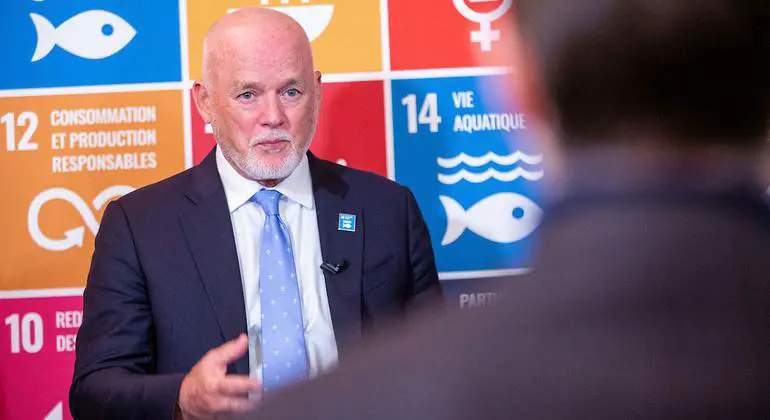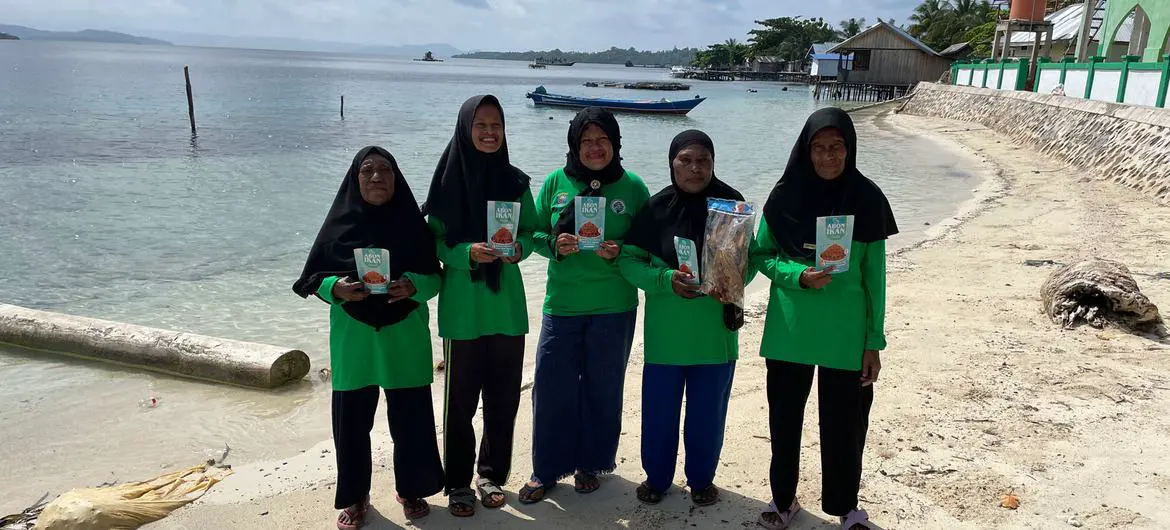Humans can't survive without a healthy Ocean: UN envoy | UN News
The Ocean is in deep crisis. Factors such as acidification, declining fish stocks, rising temperatures and widespread pollution are contributing to a catastrophic decline in biodiversity: over half of marine species are at risk of extinction this century.
We have protected close to ten percent of the Ocean at this point. So, as we go into the last five years of the decade, the important question that we should be asking ourselves is, how are we going to protect that other 20 per cent? Do we have the right instruments? Do we have the right incentives? Do we have the right amount of money and ambition to achieve it?
Peter Thomson: The best of our scientists told us that if we don’t protect 30 per cent of the planet by 2030, we are going to begin seeing a great cascading away of species on this planet and extinctions, including the extinction of Homo sapiens.
That's why this 30 per cent protection assumes such great importance, and the Ocean community stood up and committed to protecting 30 per cent of the Ocean. Whether we get there or not is a big question, but at least we're going to have a plan to get there.
UN News: This is the first UN Ocean Conference since the adoption of the High Seas Treaty. Why is this important?

Peter Thomson: The Treaty brings in a multilateral regime for the exploitation of genetic resources and sharing technology. We are very hopeful that, by the time of the UN Ocean Conference, we will have got the sixty ratifications required for the Treaty to come into force.
Equally important to me are the World Trade Organisation Harmful Fisheries Subsidies. We are very close to an agreement. This is about up to $30 billion of public money funding industrial fleets each year, to go out and chase diminishing stocks of fish.
It is human madness. That money should be going towards the development of coastal communities or adaptation to sea level rise, rather than subsidizing industrial fishing fleets.

UN News: What role should the private sector play in the protection of the Ocean?
Alfredo Giron: It is not enough to think about sustainable use. Now we need to think about regeneration. For example, if you install an offshore wind farm, can you make sure that you use the right materials so that you can build a coral reef around it? Or, if you build a new port, can you use mangroves to protect and stabilise the coastline, while making sure that the waves are not as strong and that the ships can interact more easily with the port itself?
If we stop thinking about the private sector as the flip side of conservation but rather as one more stakeholder that will really benefit from a healthy Ocean, then we start unlocking a lot of opportunities. The WEF is partnering with the UN to bring in the private sector and help them to navigate and understand what is going on in this space.
Minna Epps: We also must stop thinking about the private sector as a homogenous group, and distinguish between the big corporations that we can we need to work with, and the small to medium enterprises that we need to invest in.
We want this conference to be a game changer. We are focusing on initiatives such as the International Panel of Ocean Sustainability, which is gathering both scientific and Indigenous knowledge. Then there is finance: how do we move the needle in a decisive manner? Because without that happening, the conference will not have a strong legacy.



